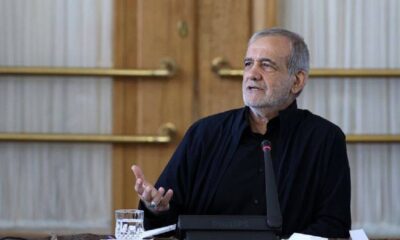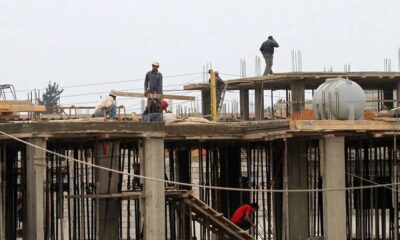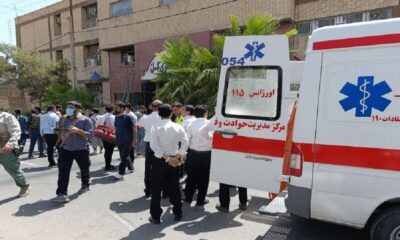Latest News
IEA Supreme Leader chairs 2nd Special Meeting of Economic Commission

The 2nd Special Meeting of the Economic Commission for the year 1446 Hijri was held under the leadership of Mawlawi Haibatullah Akhundzada, the Supreme Leader of the Islamic Emirate of Afghanistan (IEA), on the 28th, 29th, and 30th of Shawwal al-Mukarram (April 26 to 28), the Deputy Prime Minister’s Office for Economic Affairs said in a statement on Wednesday.
At the meeting, a decision was made to allow the export of Afghan livestock for six months each year, under a regulated mechanism.
In addition, the General Directorate of Administrative Affairs was assigned the responsibility of formulating a comprehensive process, in coordination with relevant ministries, to expedite the processing of investors’ and traders’ affairs within government institutions and to resolve existing challenges across all sectors.
This procedure is to be submitted first to the Economic Commission for endorsement, and then to the office of the IEA’s supreme leader for final approval.
This second meeting follows reports on the decisions made during the first meeting of the Economic Commission, which was held under the leadership of the supreme leader on the 3rd of Jumada al-Awwal 1446 (November 29, 2024).
At the first meeting, a committee chaired by the General Directorate of Administrative Affairs was assigned the task of formulating a procedure for facilitating the sale and distribution of state-owned plots and the leasing of buildings in accordance with urban planning principles.
This committee presented the draft procedure for review during this second meeting, and after incorporating certain amendments, the procedure will be sent to the office of Haibatullah Akhundzada for final approval.
According to this procedure, citizens can complete the land registration process of private land within 15 days, and have the land map approved and initiate construction work within one month.
At the first meeting, the Ministry of Agriculture was tasked with transferring land to the Ministry of Industry and Commerce in all provinces for the establishment of industrial parks.
Meanwhile, during the second meeting, both ministries reported on the implementation of this decision, confirming that the transfer of 80,000 hectares of land had been completed in most provinces, while in some provinces the process is nearing completion.
This initiative is expected to resolve the issue of land shortage for industrialists across all provinces.
Additionally, a committee led by the Ministry of Public Health was assigned to develop a procedure to prevent the smuggling of human, animal, and agricultural medicines, health products, and food items.
The committee prepared and presented the procedure for evaluation during the second meeting. After integrating a series of amendments, the procedure will be submitted to the office of the IEA leader for approval.
Also during the second special meeting of the Economic Commission, reports on the implementation of the decisions made in the first meeting were presented by the relevant ministries and institutions.
Latest News
Over 96,000 overflights crossed Afghanistan’s airspace in past year
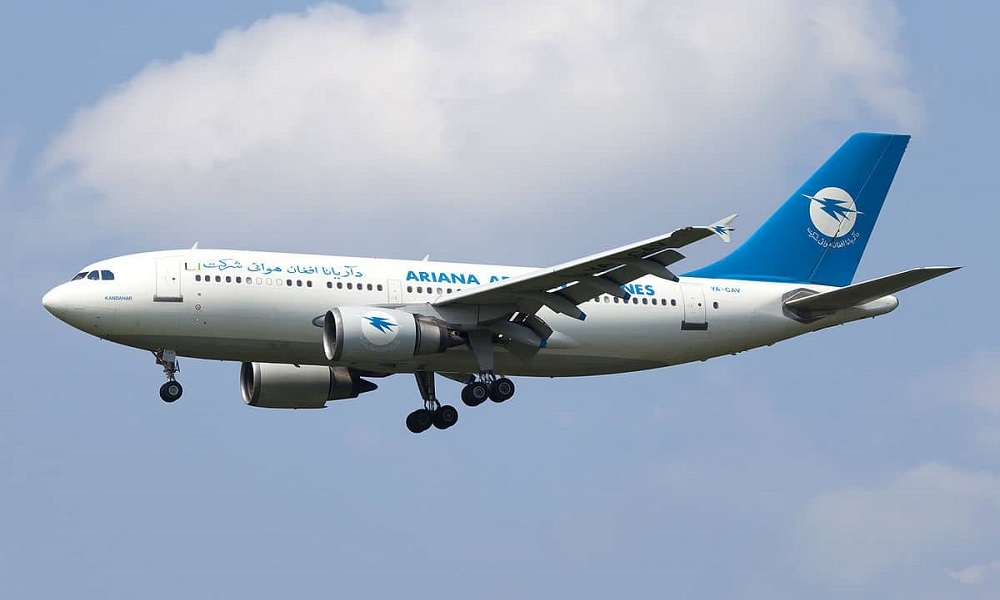
Officials from the Ministry of Transport and Aviation said on Saturday that over past year, more than 96,000 overflights flights have passed through Afghanistan’s airspace.
Speaking at a press conference to outline the ministry’s annual achievements, officials from the ministry stated the figures show that approximately 200 overflights passed through Afghanistan’s airspace every 24 hours.
According to the officials, Afghanistan’s airspace is secure, and all international airlines are permitted to operate through it.
Fathullah Mansour, Deputy Minister of Transport and Civil Aviation, said: “In the past year, 96,500 transit flights have been conducted through Afghanistan’s airspace.”
They also said that 55 projects have been financed through the Ministry’s development budget during the past year. Of these, 34 projects which have directly or indirectly created employment for 4,000 people, will soon be completed.
Ministry officials added that in the area of ground transportation, they have achieved progress such as issuing special permits for short-term travel and facilitating the movement of thousands of cargo vehicles to neighboring countries, including Pakistan.
They stated that transport of cargo vehicles to other countries, including Iran and Uzbekistan, has likewise been facilitated.
In terms of international ground transport, Afghanistan currently has agreements with Uzbekistan, Turkmenistan, Tajikistan, Kazakhstan, Turkey, Iran, and Pakistan.
According to ministry officials, the allocation of frequencies and communication equipment used at airports has been expanded. At present, 27 airports across the country are operational and providing standard services.
Latest News
Iranian president to visit Afghanistan to ‘open a new chapter’ in relations
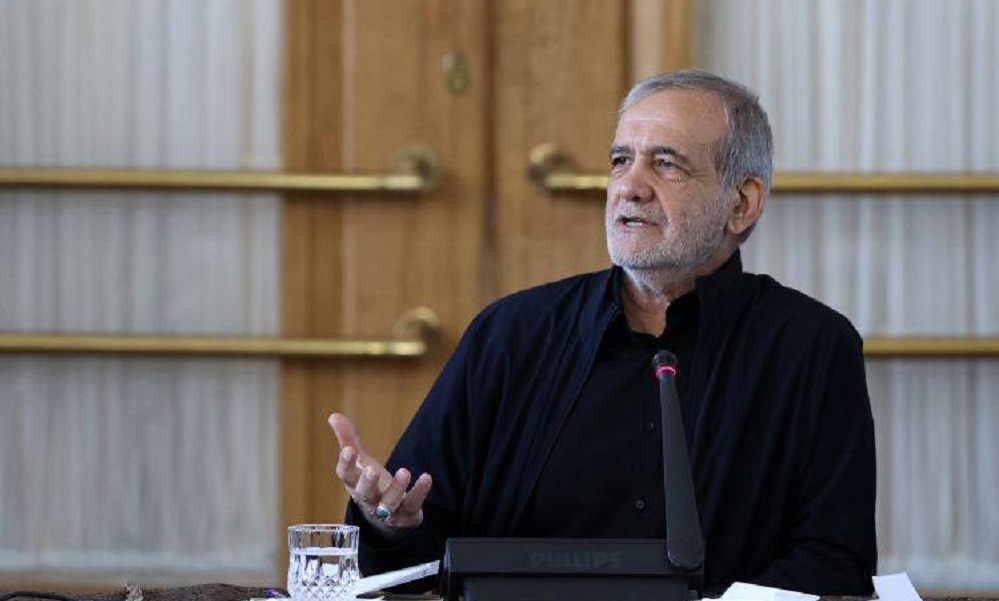
Iranian President Masoud Pezeshkian on Saturday announced his readiness to visit Afghanistan, stating that the trip would aim to “open a new chapter” in the relations between the two neighboring countries.
During a meeting with Foreign Ministry officials, Pezeshkian emphasized that strengthening ties with regional neighbors — including Afghanistan, Turkey, Pakistan, and Gulf states — will be a cornerstone of his administration’s foreign policy.
If the visit takes place, it would be the highest-level Iranian delegation to travel to Kabul under the Islamic Emirate-led government and may signal a shift toward greater diplomatic engagement.
Latest News
Departure of Afghan workers disrupts Iran’s construction industry
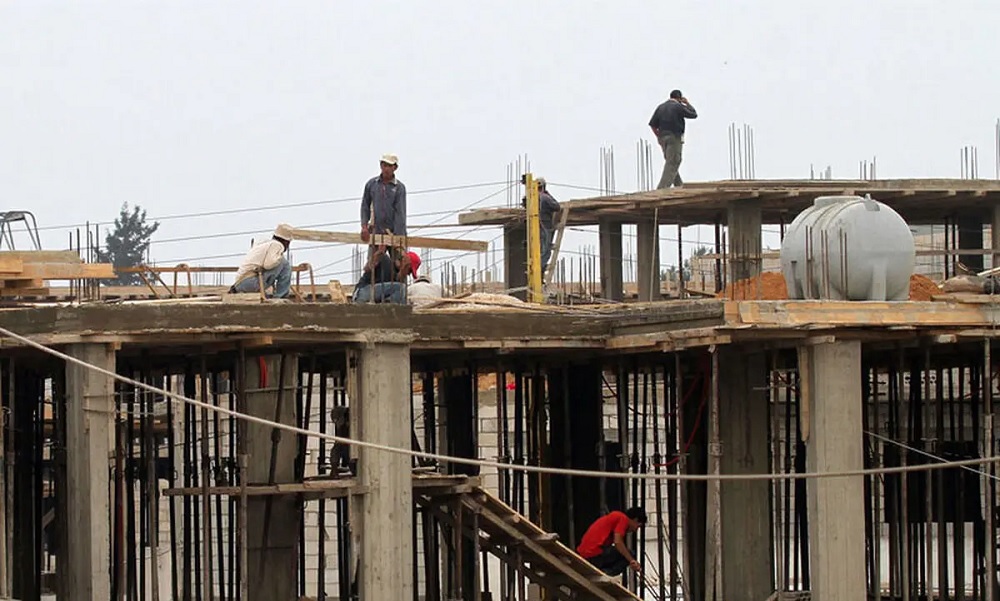
The mass departure of Afghan workers from Iran has created serious challenges for the country’s construction sector, which has long relied on Afghan labor for critical roles. According to Iraj Rahbar, head of the Tehran Construction Association, more than 50% of construction workers in Tehran were Afghan nationals.
In an interview with ILNA News Agency, Rahbar explained that Afghan workers had become essential in a range of roles — including unskilled labor, rebar work, stone masonry, building, and cement work — as many Iranian workers were unwilling to take on such physically demanding jobs for lower wages. Afghan workers, he noted, were not only more affordable but also commonly employed without social insurance, making them more attractive to employers.
Rahbar said that after the government’s decision to expel Afghan nationals, many construction projects have stalled. He added that replacing Afghan labor with Iranian workers will take time and significantly increase project costs.
Iran has stepped up deportation of Afghan refugees.
On Friday, Jan Egeland, Secretary General of the Norwegian Refugee Council, warned of the humanitarian consequences of mass returns. He stated that over 1.5 million Afghans have been forced to return from Iran to Afghanistan, with many lacking shelter, income, or basic necessities.
Egeland called for an immediate end to forced deportations and urged the international community to step up humanitarian support for both Afghanistan and neighboring host countries.
“With over 22 million people already in need of assistance in Afghanistan, these arrivals would further exacerbate the need for aid,” he said.
-
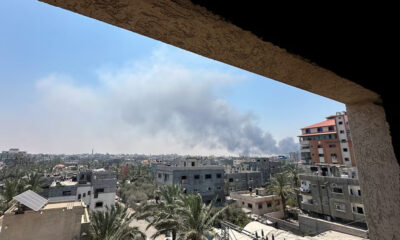
 World5 days ago
World5 days agoUK, France and 23 other nations condemn Israel over ‘inhumane killing’ of civilians
-
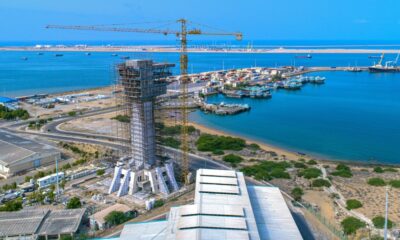
 Business5 days ago
Business5 days agoChabahar port offers most economic, secure sea access for Afghanistan: Iranian official
-
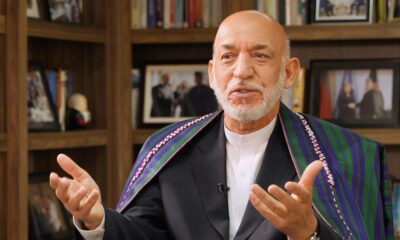
 Latest News5 days ago
Latest News5 days agoKarzai congratulates Kankor top scorers, urges education access for Afghan girls
-
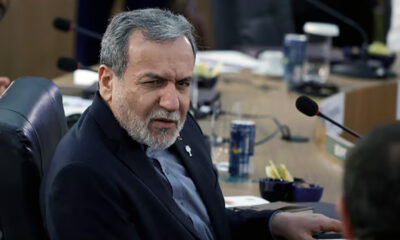
 Regional5 days ago
Regional5 days agoIranian foreign minister says Iran cannot give up on nuclear enrichment
-
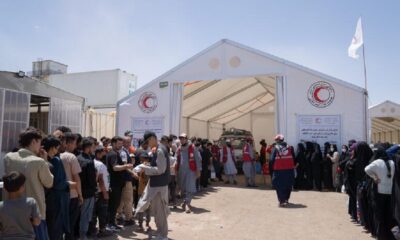
 Latest News5 days ago
Latest News5 days agoOver 2.6 million Afghans return home with nothing to rebuild lives: IFRC
-

 Business5 days ago
Business5 days agoAfghanistan reopens major industrial manufacturing complex to boost domestic production
-

 Sport3 days ago
Sport3 days agoAFPL: Etihad 6–2 Zaher Asad; Noorzad edge Zaitoon 3–2
-
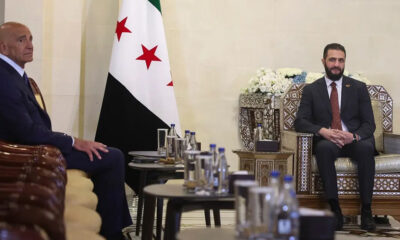
 Latest News4 days ago
Latest News4 days agoUS envoy urges Syria’s Sharaa to revise policy or risk fragmentation






